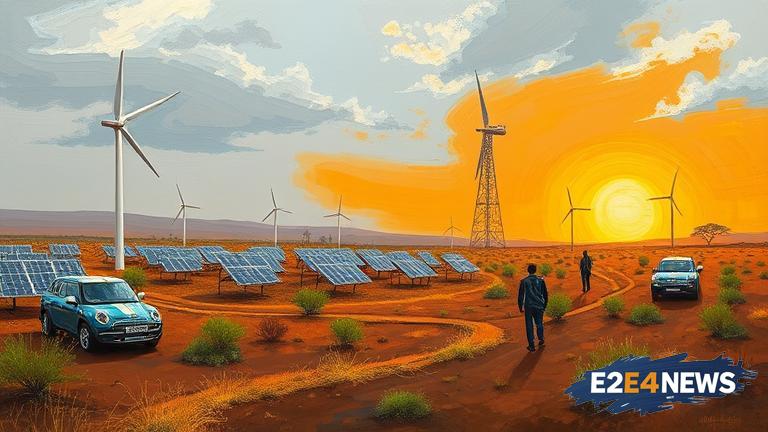The African continent is witnessing a significant shift towards renewable energy, driven by the need to address the pressing issues of energy access, energy security, and climate change. With many countries still struggling to provide reliable and affordable electricity to their citizens, renewable energy has emerged as a viable solution. Solar and wind power are leading the charge, with countries like South Africa, Egypt, and Morocco investing heavily in these sectors. The cost of renewable energy technologies has decreased dramatically over the years, making them more competitive with fossil fuels. This has led to a surge in investment, with international organizations and private companies pouring billions of dollars into African renewable energy projects. The African Development Bank has been at the forefront of this effort, providing financing and technical assistance to countries looking to develop their renewable energy sectors. The bank’s ‘Desert to Power’ initiative, for example, aims to develop 10,000 megawatts of solar power in the Sahel region by 2025. Other organizations, such as the International Renewable Energy Agency (IRENA) and the United Nations Environment Programme (UNEP), are also working to support the development of renewable energy in Africa. The benefits of renewable energy are numerous, including reduced greenhouse gas emissions, improved air quality, and enhanced energy security. Additionally, renewable energy can create jobs and stimulate local economies, contributing to sustainable development and poverty reduction. However, despite the progress being made, there are still significant challenges to overcome. These include the lack of infrastructure, limited access to financing, and the need for policy and regulatory frameworks that support the development of renewable energy. To address these challenges, African countries must work together with international partners to develop comprehensive strategies for the development of renewable energy. This includes investing in grid infrastructure, promoting private sector investment, and developing policies that support the growth of the renewable energy sector. Furthermore, there is a need for increased awareness and education about the benefits of renewable energy, as well as the importance of climate change mitigation and adaptation. The private sector also has a critical role to play, with companies like Vestas, Siemens Gamesa, and Goldwind leading the charge in the development of renewable energy technologies. In addition, innovative financing models, such as green bonds and crowdfunding, are being explored to support the development of renewable energy projects. The future of renewable energy in Africa looks bright, with the potential to transform the continent’s energy landscape and contribute to sustainable development. As the world continues to grapple with the challenges of climate change, the shift towards renewable energy in Africa is a positive step towards a more sustainable future. With continued investment, innovation, and cooperation, the continent can unlock its vast renewable energy potential and emerge as a leader in the global transition to a low-carbon economy. The development of renewable energy in Africa is not only a matter of environmental sustainability but also of economic development and social justice. It has the potential to create jobs, stimulate local economies, and improve the lives of millions of people across the continent. In conclusion, the renewable energy revolution in Africa is gaining momentum, driven by the need to address the pressing issues of energy access, energy security, and climate change. With continued investment, innovation, and cooperation, the continent can unlock its vast renewable energy potential and emerge as a leader in the global transition to a low-carbon economy.





